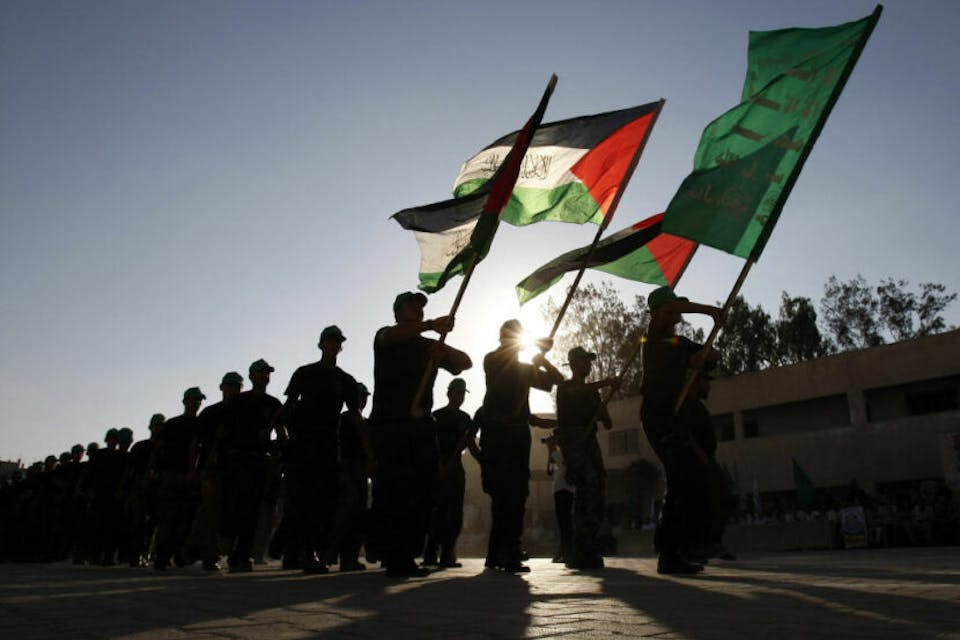
May 1, 2025
Hamas Is Not Just a Terrorist Organization
At the start of this war, the jihadist group had governing authority, territorial control, a functioning bureaucracy, and a trained army.
On October 7, 2023, Hamas fighters from Gaza launched one of the most brutal assaults on Israeli soil since the country’s founding—killing civilians, seizing hostages, and briefly occupying territory. The attack was quickly labeled a “terror attack,” and Hamas, a U.S.-designated Foreign Terrorist Organization, was cast once again in the role of a group of religious extremists operating outside of the system of sovereign states. This framing, though familiar, is flawed. It creates misperceptions about the scale, nature, and legal classification of the conflict Israel now faces. And it misleads both policymakers and the public about the rules that govern this conflict, the expectations of response, and the real meaning of proportionality.
It is time to stop calling Hamas just a “terrorist organization.” This argument is, of course, heard most often from those who would claim that Hamas consists of “freedom fighters” and that the term terrorist is unfairly biased or even a sign of racial prejudice. The case we make here is very different, and not moralistic, but legal and strategic. Undoubtedly, Hamas is a terrorist organization that has committed countless acts that fit any standard definition of the term. But in addition it is a political-military entity with governing authority, territorial control, and a functioning bureaucracy. It maintains a trained army, organizes military campaigns, and conducts operations that resemble traditional armed conflict far more than they resemble isolated acts of terrorism. Labeling Hamas a terrorist group undermines the legal clarity and strategic understanding necessary to fight and win a war. It also distorts public perception of what Israel is actually doing—and what it is allowed to do under the law of armed conflict.
The term “terrorism” has political, legal, and operational meaning. Under U.S. law, a terrorist act is politically motivated violence by non-state actors targeting civilians. These acts of violence traditionally involve bombings of civilian buses or buildings, hijackings, and similar tactics; the appropriate response to such violence, accordingly, is counterterrorism, which refers to limited, targeted actions—drone strikes, special operations, law-enforcement responses—aimed at disrupting such threats. This framework does not fit the events of October 7, the lead-up to that attack, or its aftermath.